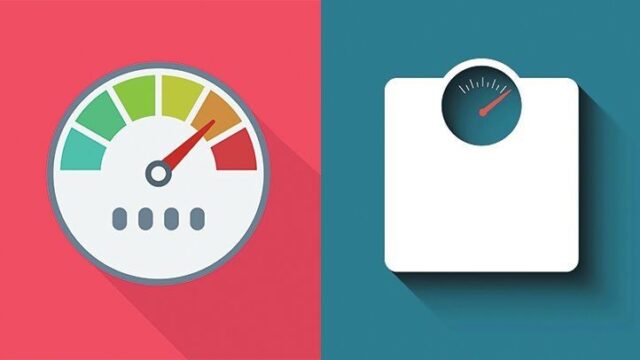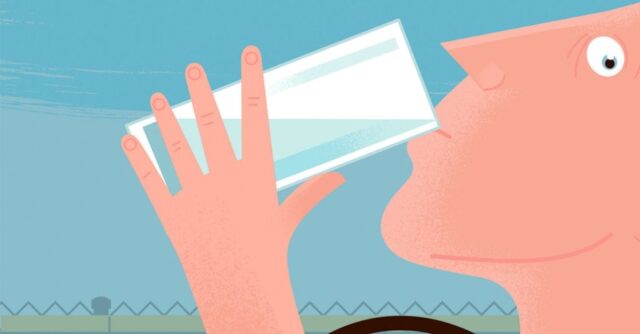
Crash dieting this time of year is unfortunately pretty common. Body confidence, or the general lack of it, is an issue in itself. But the other concern about the above scenario playing out is the damage it can do to your health.
While a crash diet may help you lose those extra weight in time for that week but the results are generally short-lived and can ultimately have a negative impact on your body and mind.
It can be easy to be tempted by the quick fix of a crash diet but here, we lays out exactly how crash dieting can impact your body so you might just reconsider:
- IT CAN REDUCE YOUR METABOLIC RATE

A high metabolism is key to losing weight, but crash dieting can actually make your metabolic rate lower. Muscle breakdown is much greater with extreme dieting, rather than a steady prolonged approach. Less muscle reduces your metabolic rate, which is the number of calories you burn while resting and can ultimately result in weight gain later on.
- IT CAN WEAKEN YOUR IMMUNE SYSTEM
By depriving yourself of essential minerals and vitamins you risk weakening your immune system. And we all know that a low immune system makes getting ill far more likely – not what you want while you’re away on holiday. If you cut out all fatty foods from your diet, absorbing fat-soluble vitamins such as A, D, E and K may prove problematic. These vitamins are necessary as they help to support your immune system, so lacking in them could cause future issues.
- IT CAN CAUSE KETONE PRODUCTION
With a very low carbohydrate diet, your body may start to break down fatty acids to produce ketones. You might have heard of ketones if you’ve ever read up on the keto diet. Sure, it might cause you to drop a few pounds, but it’s also got some damaging side effects too, including “nausea, bad breath and liver or kidney problems”.
- IT CAN CAUSE DEHYDRATION

Have you ever wondered why some diets, like juicing, lead to such quick weight loss? It’s because you’re losing water weight – but that’s not ideal for longer-term weight loss. Glycogen stores, which are a source of energy that binds water, are depleted faster than the fat cells releasing the water. So, when you start eating again, your body will replenish glycogen and water store and weight gain follows. “You run the risk of dehydration as a result, which can manifest with a headache and dizziness.”
- IT CAN TRIGGER HEART ISSUES
Crash dieting can have some positive outcomes, for example, lowering blood pressure, cholesterol and blood sugar levels. But they can also have some potentially harmful effects on the heart as a result of increased heart fat levels which can occur. Anyone with heart problems should discuss with their doctor prior to embarking on a crash diet due to the risk of heart problems arising early on in the diet.
- IT CAN DAMAGE YOUR HAIR AND SKIN QUALITY
If vanity’s your thing, this might convince you to avoid crash dieting. When you go on a crash diet, you limit the amount of vital vitamins and nutrients that your body absorbs. And this, in turn, may have a negative impact on your physical appearance. The lack of nourishment may be reflected in your hair, causing it to look lacklustre, fall out and generally reflect your lack of the right vitamins. Similarly, your skin could be left feeling dry and you may experience an acne breakout.
- IT CAN DISTURB BOWEL HABITS

A crash diet can also result in some tummy trouble. As the expert explains, if you are not getting the right nutrients in your diet, this could result in irregular or inconsistent bowel movements. Taking note of the consistency of your stool to work out whether your diet is healthy. If it is either too runny or very difficult to pass, it is a sign that you should make a dietary change.
- IT CAN LEAVE YOU WITH LOW ENERGY LEVELS
While crash diets may lead to weight loss, most of this weight comes from the reduction of glycogen and water stores in the body which can result in the loss of energy, making you feel fatigued. Similarly, due to the reduction of vitamins and nutrients taken in while doing a crash diet, your body is unable to produce energy, leaving you feeling sluggish and tired.
- IT CAN MAKE YOU IRRITABLE
Don’t want to be a grump on holiday? Crash dieting might not be the way forward. Fad diets can trigger the release of corticosterone from the brain, which predisposes us to heightened stress levels, irritability and risk of depression. You may also experience poor concentration and disturbed sleep which can lead to fatigue.
Rather than putting yourself under the pressure and perils of a crash diet. We advises, try to give yourself more time with regular realistic weight loss goals. With longer-term lifestyle changes you will be more likely to make a long-term difference of a more toned and healthy physique, while avoiding the turmoil of depriving yourself of a nutritious and balanced diet.
#CrashDieting
#HealthRisks
#SustainableWeightLoss
#HealthyEating
#WellnessJourney
#NutritionMatters
#Metabolism
#BalancedDiet
#LongTermHealth
#HealthyLiving
